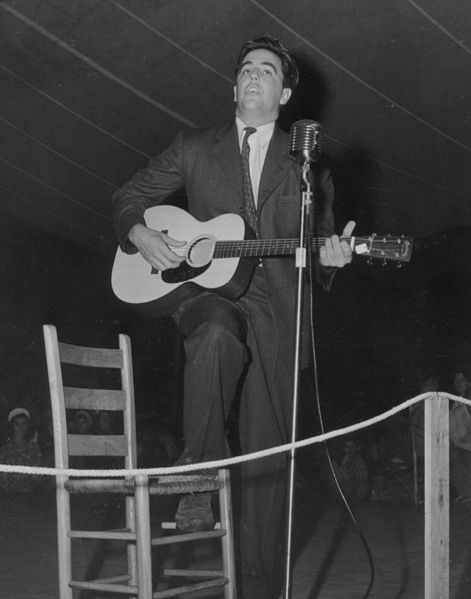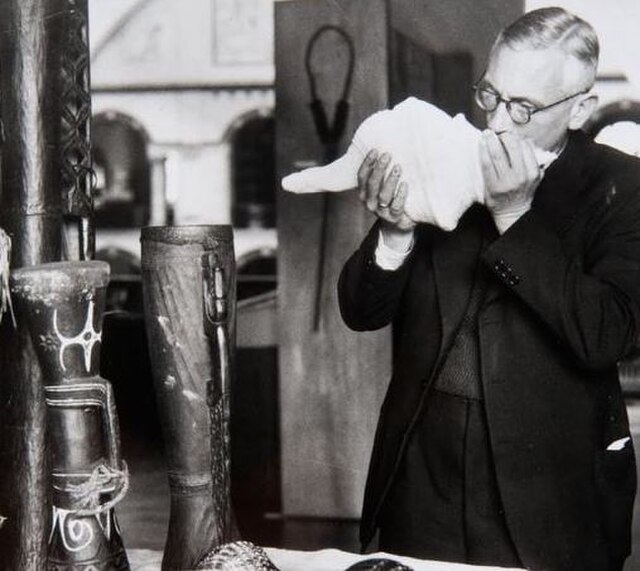Alan Lomax was an American ethnomusicologist, best known for his numerous field recordings of folk music of the 20th century. He was a musician, folklorist, archivist, writer, scholar, political activist, oral historian, and film-maker. Lomax produced recordings, concerts, and radio shows in the US and in England, which played an important role in preserving folk music traditions in both countries, and helped start both the American and British folk revivals of the 1940s, 1950s, and early 1960s. He collected material first with his father, folklorist and collector John Lomax, and later alone and with others, Lomax recorded thousands of songs and interviews for the Archive of American Folk Song, of which he was the director, at the Library of Congress on aluminum and acetate discs.
Lomax at the Mountain Music Festival, Asheville, North Carolina, early 1940s.
Ethnomusicology is the multidisciplinary study of music in its cultural context, investigating social, cognitive, biological, comparative, and other dimensions involved other than sound. Ethnomusicologists study music as a reflection of culture and investigate the act of musicking through various immersive, observational, and analytical approaches drawn from other disciplines such as anthropology to understand a culture’s music. This discipline emerged from comparative musicology, initially focusing on non-Western music, but later expanded to embrace the study of any and all different kinds of music of the world.
Jaap Kunst, early ethnomusicologist and creator of the term 'ethno-musicology', plays the Indonesian triton, beside other traditional Indonesian instruments
Frances Densmore recording Blackfoot chief Mountain Chief for the Bureau of American Ethnology in 1916
Note the number of Western and non-Western tunings that occur within the valid tuning range of the syntonic temperament.




